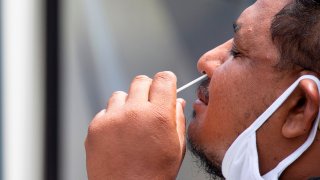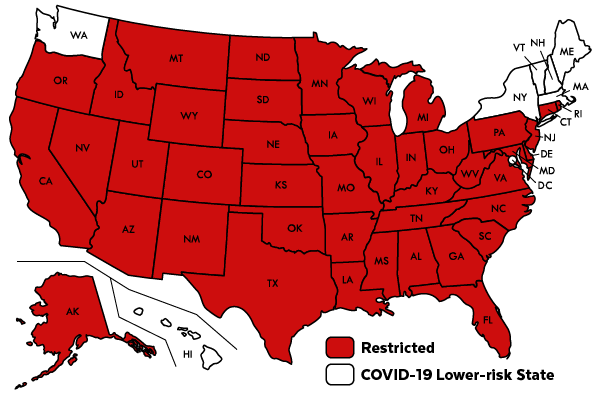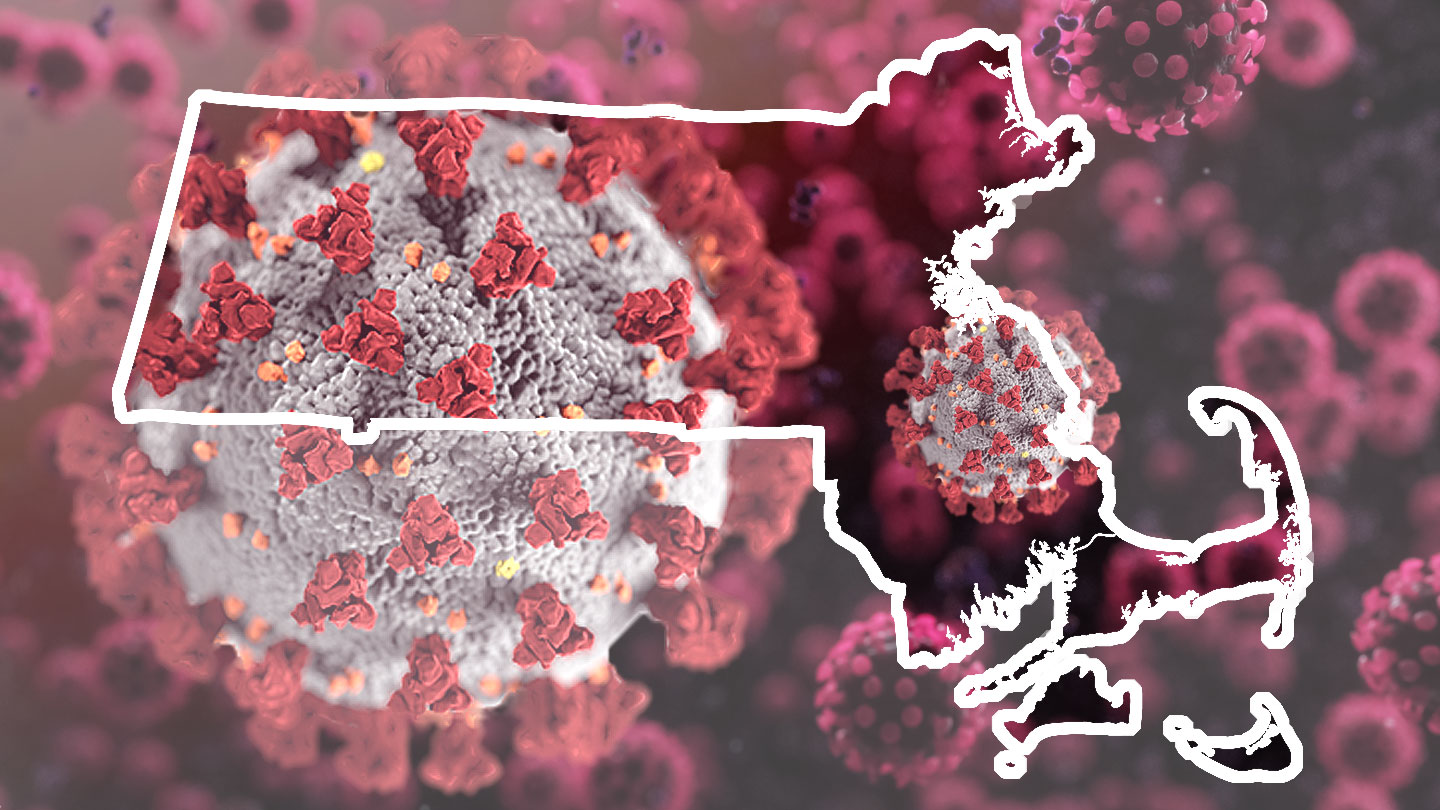
Massachusetts reported 2,200 new confirmed coronavirus cases Saturday and an additional 23 deaths.
It's the highest number of new cases reported in a single day by the Massachusetts Department of Health this fall and the first time since April 24-25 that health officials have reported more than 2,000 new cases of the virus on consecutive days.
There have now been 9,903 confirmed deaths and 164,936 cases, according to DPH. Another 226 deaths are considered to be probably linked to COVID-19.
The 7-day average percentage of coronavirus tests coming back positive has climbed to 2.27%, according to the report.
The number of patients hospitalized for COVID-19 increased to 535. Of that number, 127 were listed as being in intensive care units and 60 are intubated, according to department.
After months where the state reported fewer than 1,000 coronavirus cases, last month the daily report from the Department of Public Health started showing numbers above that level. Before Friday, the last time the state reported more than 2,000 cases was May 1.
More on the Coronavirus in Mass.
Saturday's numbers come as hockey players across Massachusetts are now able to play in indoor rinks again following a two-week hiatus from the ice. In October, ice and roller rinks were shut down due to several new clusters that were traced back to hockey games and practices.
Those returning to the ice must adhere to new restrictions, however, namely that players, coaches and officials must wear masks at all times.
Also starting Saturday, Massachusetts will start requiring that people arriving in the state from California stay in quarantine, the Department of Public Health announced Friday. The update to the state's travel order went into effect at 12:01 a.m. on Nov. 7.
Massachusetts' full list of states deemed to be low risk as of Saturday now includes just six states, and the country's capital: Washington, D.C.; Hawaii; Maine; New Hampshire; New York; Vermont and Washington.
Meanwhile, a coronavirus outbreak linked to a Massachusetts church has grown to more than 200 cases, health officials say. The cases have been traced to services held at the Community Crossroads Church in Fitchburg on and around Oct. 18, the Fitchburg Board of Health announced Friday.
Anyone associated with activities at the church should get tested, the board said. Cases and contacts traced back to the church have affected 75 businesses and 22 area towns.
The church, in a Facebook post, said blaming the city's outbreak on the church is "unfair and a distortion of the facts.'' It said it does everything in its power to keep the congregation safe.
In an attempt to curb the spread of the virus, more stringent coronavirus restrictions went into effect Friday in Massachusetts, including a statewide curfew, expanded mask requirements and enforcement of gathering limits.
The new guidelines took effect at 12:01 a.m. on Friday with a goal of slowing the rise in COVID-19 cases and preventing the state from reverting to Phase 1 or 2 of reopening. Gov. Charlie Baker said they will likely remain in place for at least a month.
Sixteen communities are now considered at the highest risk for transmitting the virus, according to the state's latest weekly community-level data on the coronavirus pandemic, which no longer includes an updated town-by-town COVID-19 risk assessment map.
It's a dramatic decrease from last week after a major change in how the state determines risk of coronavirus transmission. Last week there were 121 communities in the highest-risk red zone; this week's list, which factors in population, has 105 fewer cities and towns there.
Boston, Worcester and Cambridge are among the many communities no longer in the red. And no communities that have consistently been in red are listed in the report as being required to move back to Phase 3, Step 1 of the Massachusetts reopening plan.
In the town-by-town data that was released Friday, the following communities are in the highest risk level: Brockton, Chelsea, Everett, Fall River, Fitchburg, Lawrence, Lowell, Lynn, Methuen, New Bedford, Norfolk, Revere, Seekonk, Somerset, Springfield and Westport.



